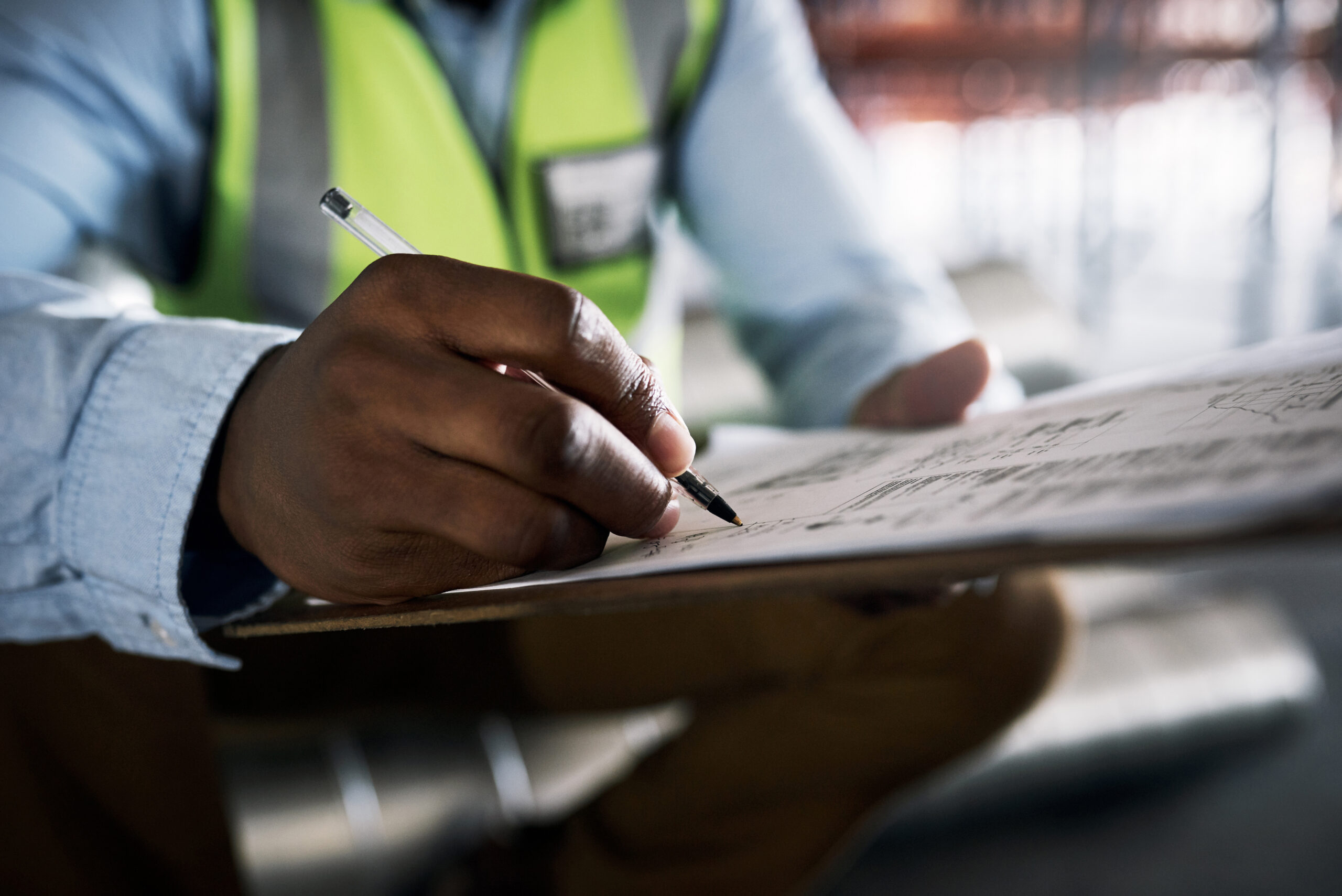Industrial Accident Attorney
The Ultimate Industrial Accident Attorney Guide in Louisiana

What Are Industrial Accidents?
Industrial accidents refer to unforeseen incidents that occur in an industrial setting, often resulting in injury or harm to workers. These can be caused by multiple factors, such as machinery malfunctions, chemical leaks, or failure to adhere to safety protocols.
If these accidents result from negligence, the injured party can claim just compensation to cover medical costs, emotional damages, and lost earnings. However, industrial accident cases can be complex, so it’s important to book a legal consultation with an experienced attorney as soon as possible following the accident.
This guide will explore the most common types of industrial accidents, what causes them, and how injured employees can seek restitution.
Need Legal Assistance?
Book a Free Consultation
Talbot, Carmouche & Marcello is pleased to offer this guide to industrial accident claims in Louisiana. Don’t miss out on your chance for fair compensation. Contact our law firm to schedule a free consultation with an experienced industrial accident attorney today.
Common Types of Industrial Accidents
Working in an industrial setting comes with many occupational hazards. Accidents can happen for a variety of reasons, but these are some of the most prevalent types:
Transportation Accidents
Busy warehouses, loading docks, logistics yards, and manufacturing plants have a lot of vehicular and pedestrian traffic. Collisions between forklifts, trucks, and workers frequently occur, leading to crush injuries, spinal damage, or worse. Proper controls and separation between vehicles and footpaths can be essential.
Chemical Leaks
Toxic liquids and gases are indispensable to many industrial processes, especially manufacturing. However, equipment failure, corrosion, operator error, or inadequate storage can all lead to leaks and spills of dangerous chemicals. Exposure can cause severe injuries and illnesses.
Slips and Falls
Elevated work areas are common in industrial settings. Ladders, scaffolds, cranes, roofs, and open-sided floors put employees above ground level. A lack of proper railings, harnesses, and other fall protection makes it easy to slip and suffer debilitating or fatal falls.
Machinery Accidents
Powerful heavy machinery with many moving parts is commonplace in factories, mills, plants, construction sites, and other industrial facilities. Workers can easily get fingers or loose clothing caught in conveyors, gears, rollers, and other equipment. Electrocution from exposed wiring is also a hazard, and poorly maintained machinery with disabled safety features heightens the risks.
Fires and Explosions
Any workplace with flammable chemicals, pressurized gases, and other volatile substances risks fires and explosions. Mishandling of chemicals, improper storage procedures, and ignition sources like welding torches can all trigger or fuel a fire. Fires can spread swiftly and become massive blasts that endanger the facility, employees and the surrounding community.
Confined Spaces
Tanks, silos, pipes, utility vaults, and other confined spaces are part and parcel of many industrial settings. These tight enclosures run the risk of toxic fumes, oxygen deficiency, or a build-up of explosive gases that can asphyxiate or poison employees.
Additional hazards like high noise levels, air contamination, cluttered walking paths, and heavy loads can plague work sites and lead to harm. Awareness of the diverse range of dangers in industrial work is the first step toward prevention.
How Industrial Accidents Tend to Occur
Sadly, industrial accidents resulting in injuries, illnesses, and even deaths occur far more often than they should across many industries. From manufacturing and construction to healthcare and offices, employees may face daily hazards.
It is in everyone’s best interest to fully understand why industrial accidents happen, how to respond if one occurs, and what compensation injured workers may be entitled to. Employers also need to be aware of their responsibilities in preventing accidents and providing benefits to their team.
Some common precursors to industrial accidents are:
Unsafe Conditions
Unsafe conditions in an industrial setting can have a variety of causes; such as, obsolete or poorly maintained equipment, lack of proper safety training, or facilities not designed with accident prevention in mind.
Employee Error
Even the most experienced workers can make errors in judgment or fail to follow exact procedures from time to time. Something as small as pulling the wrong lever or being briefly distracted is enough to spark a catastrophe if other precautions fall short. Fatigue and inadequate training can magnify the risks.
Management Oversight
Some industrial accidents can be traced to management’s failure to identify and address hazards. Lack of maintenance, minimal enforcement of safety rules, and inadequate inspections can all let dangers go unnoticed. Also, productivity pressure from management can lead to staff cutting corners.
Natural Disasters
Natural disasters like fires, floods, tornadoes, hurricanes, and earthquakes can wreak havoc on industrial facilities. They damage critical safety infrastructure and can force rushed, chaotic actions. Utility failures also halt operations. Such unpredictable crises can quickly breed accidents.
Most industrial accidents arise from some combination of organizational negligence and individual error. Examining past incidents in detail makes it possible to see where safety gaps in policy, training, equipment, staffing, or operations lie. This knowledge can then aid accident prevention.
What to Do After an Industrial Accident
When employees get injured, sick, or disabled on the job due to an industrial accident, they may have legal rights to seek compensation from their employer. This restitution may help to pay burdensome healthcare costs and provide income to replace wages lost while recuperating. It may also offer some remedy for the pain and emotional distress suffered.
The main avenues for obtaining compensation include:

Workers’ Compensation
This insurance system funded by employers provides cash benefits and medical care to workers hurt from a workplace injury. It typically pays a portion of the injured employee’s regular salary until they recover.
While the payouts are lower than tort lawsuits, workers’ compensation offers more straightforward access without lengthy legal battles.
Personal Injury Lawsuits
Employees can sue employers in civil court for negligence that caused their accidents and injuries. If the employee wins the case, these suits can result in the company paying for economic damages like medical bills and lost earnings as well as harder-to-quantify non-economic damages like pain, suffering, and reduced quality of life. However, negligence must be proven to an exacting legal standard.
Typical Damages
The exact compensation obtained depends on many case specifics, but damages frequently sought in industrial accident claims include:
- All medical costs from hospitalization, surgeries, therapy, medications, assistive devices, etc.
- Income lost from days to months of missed work
- Permanent impairment that reduces future earnings
- Home and vehicle modifications to accommodate disabilities
- Pain, emotional distress, and loss of companionship
- Rehabilitation and occupational therapy
For accidents that prove fatal, grieving families can also sometimes claim benefits based on the deceased worker’s lost future income. However, strict time limits apply for reporting incidents and submitting the claim paperwork, so prompt action is critical.
An experienced law firm like Talbot, Carmouche & Marcello can advise on navigating these regulations. Call today to book a complimentary consultation with a professional industrial accident lawyer.
Accountability
Industrial accidents ruin far too many lives due to mechanical hazards, human error, and organizational negligence, combined with tragic effects.
While some risks are inherent with work sites, heavy machinery, and hazardous chemicals, many incidents can be avoided through proper protocols, training, maintenance, and nurturing safety-focused cultures.
Workers injured by preventable accidents have legal rights to seek compensation for their suffering.
Ultimately, understanding accident causes, implementing prevention strategies, and supporting injured staff benefit workers, companies, and society by reducing the impacts of these needless workplace tragedies.
With focus and dedication, safer workplaces are possible.
Time Constraints on Industrial Accident Claims in Louisiana
If you have suffered an industrial accident in Louisiana, acting promptly to preserve your right to compensation is essential. Louisiana sets statutory deadlines and time constraints on reporting accidents and filing claims related to workplace injuries.
Reporting an injury
You must provide notice to your employer about the accident very soon after it occurs. According to Louisiana law, you should inform your employer within 30 days of the accident that your injury was work-related. This notice can be verbal or in writing. Failure to report within 30 days could jeopardize your ability to seek benefits later.
Filing for Workers' Compensation
To obtain workers’ compensation benefits in Louisiana, you must file a claim with your employer’s insurer within one year from the accident or one year from the last payment of benefits.
The deadline may be extended to two years only if your employer or insurer fails to report the injury correctly. It’s imperative to get good legal advice, as exceptions may apply.
Filing a Personal Injury Lawsuit
The deadline to file a personal injury lawsuit over a Louisiana workplace accident is one year from the date of the injury or one year from the last payment of workers’ compensation benefits related to the injury.
This relatively short one-year statute of limitations underscores the importance of promptly consulting an experienced attorney following a serious accident to preserve your right to take legal action and recover fair compensation.
An experienced personal injury attorney can provide industrial accident assistance and legal guidance on adhering to reporting deadlines and time constraints in seeking the compensation you deserve after an industrial accident.
Navigating the Industrial Accident Legal Process
Instructing Talbot, Carmouche & Marcello to handle your industrial accident claim is straightforward. Here’s how it works:
Step One: Consult an Experienced Industrial Accident Attorney
Contact us as soon as possible after the incident to discuss your case. Our experienced team can help determine the best path forward.
Step Two: We Build Your Case
Our attorneys can gather evidence like incident reports, medical records, insurance policies, medical receipts, and communications with insurance companies. All of this evidence may go toward preparing your case for a fair settlement.
Step Three: You Receive Fair Compensation
We will seek to negotiate a fair settlement. We can take the case to trial if an agreement cannot be reached. An experienced trial attorney is essential for these types of instances.
Hire an Industrial Accident Attorney So You Can Focus on Your Recovery
Industrial accidents can be physically, emotionally, and financially draining. Reach out to Talbot, Carmouche & Marcello today to ease the burden of dealing with these claims so you can focus on your recovery.
"*" indicates required fields

